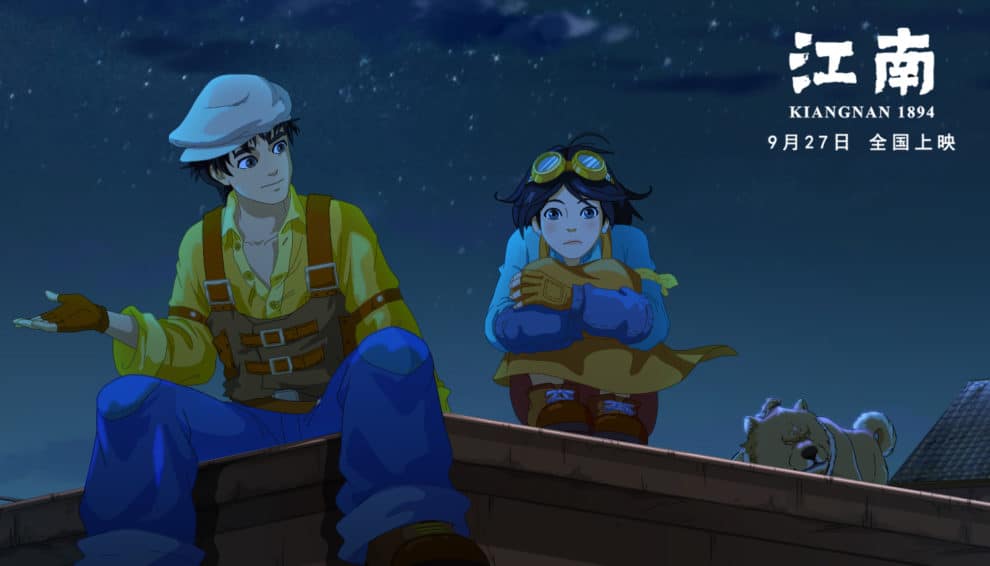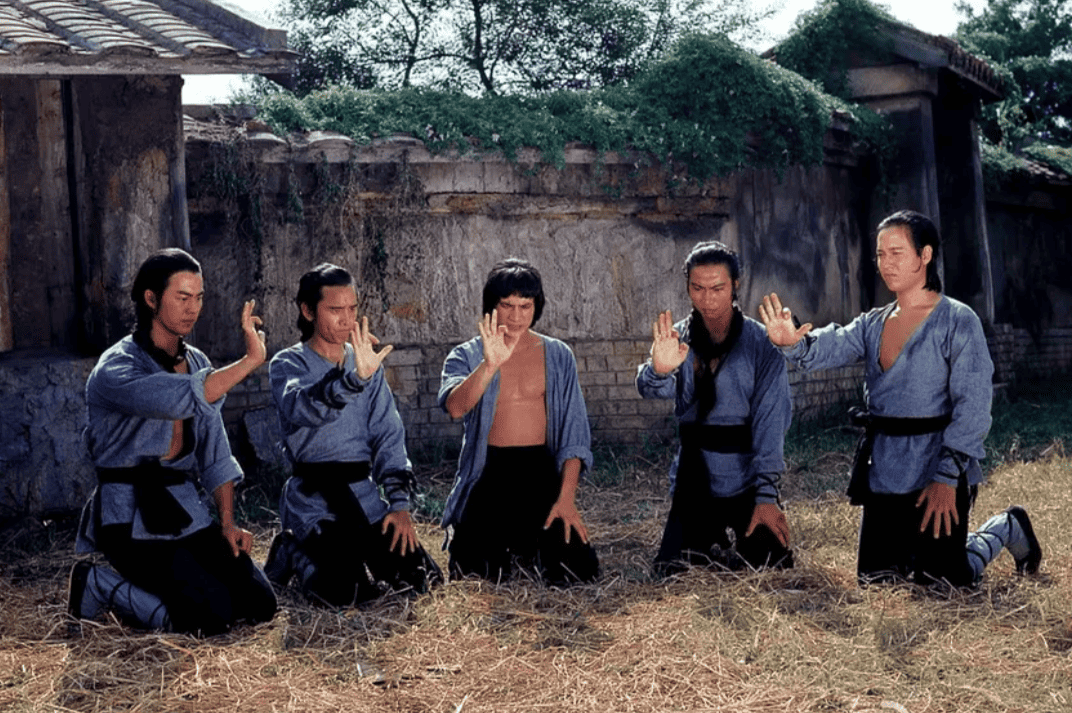Released at the beginning of October of last year in celebration of The Republic of China's 70th anniversary, “Kiangnan 1894” is a historical-action film telling the story of a plucky young mechanic's experience working for the Jiangnan Manufacturing Company during the First Sino-Japanese war. Helmed by first time director Xiaogang Wu but creatively sponsored by JMC's parent company China State Shipbuilding Corporation Limited, “Kiangnan” is a patriotic tale that boasts the glory of China's military legacy, to a mixed degree of success.
“Kiangnan 1894” is screening in Cineworld and Vue cinemas across the UK
Set in 19th century Qing Dynasty-era Shanghai during the Sino-Japanese War, “Kiangnan 1894” follows Ah-Lang, an adventurous teen who, after accidentally setting fire to a navy manufacturing warehouse, is sentenced to three years' service as the apprentice of renowned military mechanic Chen Tie Han. Proving to be a natural and creative mechanic himself, Lang spends years honing his skills in the hopes of earning his unofficial master's approval – something that the aging mechanic is reluctant to give due to the untimely death of his last protégé, who also happened to be his son. When the opportunity arises to build a warship that could turn the tide of the war, Lang – along with the help of Chen's spirited daughter, Yulan – is determined to prove himself worthy of being his master's successor. With the Japanese bent on stealing Navy blueprints for themselves, the young mechanics engage in a race against time.
Considering that “Kiangnan 1894” is a story about the Jiangnan Manufacturing Factory…produced by the Jiangnan Manufacturing Factory (now going by China State Shipbuilding Corporation Limited), it should come as no surprise that the film is unabashedly proud (to put it kindly) of its history. Certainly, “Kiangnan” feels like a sometimes eye-rolling exercise in self-celebration, portraying the Chinese military as a proud powerhouse nobly defending itself against overwhelming odds. Thankfully, for all its smug patriotism, the film never crosses the line into propaganda, deciding rather to promote the generic but universal message of hard work and perseverance.
The real problem, however, with “Kiangnan 1894”, is its terribly bland and uninspired animation, surprisingly given the movie's clear government backing. The locations are drawn well enough, but the movie seriously struggles to convincingly animate movement. There's a certain fluidness that we've come to expect from modern animation that is crucially missing here, as the movements of the characters often come off as clunky and disjointed. In one scene, the animators seemingly give up trying to animate movement altogether, having Yulan literally materialize into the scene as opposed to showing her walking on screen herself.
Unfortunately, the one-dimensionality of the character design and animation proves burdensome for aspects of the production that are otherwise operating satisfactorily. Often the animation on screen doesn't reflect the emotion being submitted by the voice actors; the syncing is awkward, sometimes delayed to the point where it's not always clear who is talking, especially in faster paced scenes with multiple characters jumping in and out of conversation.
That being said, “Kiangnan 1894” does benefit from a couple of set pieces that are actually vibrant and imaginative at points, especially in the opening dream sequence, in which Lang flies a plane through a wonderland sky into the mouth of a giant cloud God. Another enjoyable set piece sees our heroes visiting a night market at Shanghai's Town God Temple, decorated with glowing Chinese lanterns and brimming with a warm atmosphere that is found sorely lacking in the rest of the movie.
Like most of the animation, the story itself is similarly hollow and lacking in any real substance. We're offered no character development throughout the entire runtime – our protagonist starts and ends the movie with barely a lick of growth – but are expected all the same to root and feel for our heroes as if they've earnt it. In fact, our heroes are one-note and frustratingly guarded, with not nearly enough time spent connecting the audience to the desires, insecurities, and emotional core of those we should empathise with most.
Instead, the film's main focus seems to be on spectacle rather than substance. This isn't totally misguided though, as there is some entertainment to be found in the odd blend of light-hearted kung fu set pieces and explosive midst of war action. While narratively empty, they move the film along at a fast pace, ensuring that the hour and a half runtime is not empty.
There are hints of flavour to be found in “Kiangnan 1894”, but they are completely overshadowed by awkward, unimaginative character animations and a one-dimensional story that does the absolute minimum to get by. Sure, kids may find some enjoyment in the brief moments of slapstick-tinged martial arts action, and maybe even some value in the film's generic but passable message. But, in a world spoilt by the likes of Ghibli, Makoto Shinkai, Satoshi Kon, and Mamoru Hosada, should accomplishing the bare minimum really be enough to justify lazy animated storytelling?














